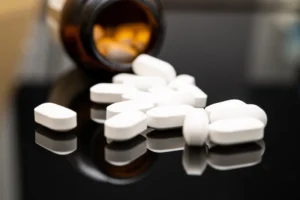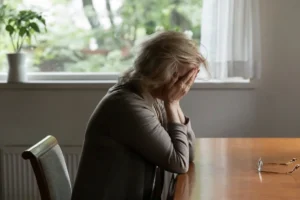Grief is probably one of the heaviest emotions anyone can experience, the loss of a loved one, for example, is a traumatic experience that weighs even the strongest of us down.
But it doesn’t end there, feelings of grief expand to other kinds of losses such as a meaningful relationship, connection, or love from a significant other, when we suffer from an incurable disease, or when we experience the loss of a job or property.
Too often, we hear stories of how someone experiencing painful grief may have fallen into despair and slipped into addiction. That is because there is a strong link between addiction and heavy negative emotions such as depression, stress, anger, and — you guessed it — grief.
Stages of Grief
Grief is a normal response of our bodies, often characterized by feelings of sadness and painful emotions, brought about when we experience a significant loss.
Grief doesn’t have a set timeline, in some cases, it may last for a few days, and in others, it could stick around for years.
Grief takes us on a ride of emotions that psychologists categorize into five stages:
- Denial or disbelief
- Anger and blame of others
- Bargaining
- Depression
- Acceptance
What Are the Symptoms of Grief
Some of the symptoms we may experience during grief include
- Anxiety
- Irritation
- Agitation
- Sadness
- Numbness
- Difficulty concentrating
- Anger
- Disorientation
How Are Grief and Addiction Connected
The risk of addiction and relapse is higher in subjects who have experienced traumatic experiences and heavy negative emotions, including some forms of grief.
The link between grief and addiction can be observed in a study that found both men and women with complicated grief have significantly higher rates of alcohol dependence than those with just issues of depression, highlighting the underlying damage that grief can cause in patients.
There are many ways in which grief can lead to addiction. Examples include:
- Using drugs and alcohol to cope with the pain and intense emotions caused by grief
- Replacing what’s lost (person or thing) with alcohol or drugs
- Hiding or isolating behind drugs and alcohol
- Using drugs and alcohol as an excuse to call for attention
- Using drugs or alcohol because of a lack of proper coping skills
- Consuming drugs and alcohol because you feel sorry for yourself
Grief and Addiction Counseling
Being diagnosed with both grief and addiction can be a delicate situation, in recovery co-occurring conditions often exacerbate each other, making it difficult, if not impossible, for the addict to get well without treating both conditions together.
Grieving addicts will likely need to attend therapy with a counselor or support group that will help them get to the bottom of their grief and work their way out of it in a healthy manner and with healthy habits.
Both inpatient and outpatient treatment settings offer addicts the opportunity to attend therapy as part of a dual-diagnosis treatment solution, allowing the addict to work on both their addiction and their recovery simultaneously.
Recovery professionals also use medication, such as antidepressants, to improve their patients’ conditions.
Getting Help
The importance of seeking professional help cannot be overstated if you or a loved one is suffering from grief and addiction at the same time.
Addiction is difficult but recovery doesn’t have to be, get the help you or your loved ones need with Ava Recovery’s exceptional dual-diagnosis treatment program. Dual-diagnosis treatment will ensure both the addiction and the grief are resolved, allowing the patient to recover and receive lifelong management tools.
Contact Ava Recovery today to speak to a specialist and find the treatment that’s best suited for you or your loved ones.







